Shack dwellers face wrath of Pimville residents
Growing frustration over high levels of crime, especially electricity cable theft, has resulted in the Chicken Farm community being blamed amid a rise in xenophobia.
Author:
17 May 2022
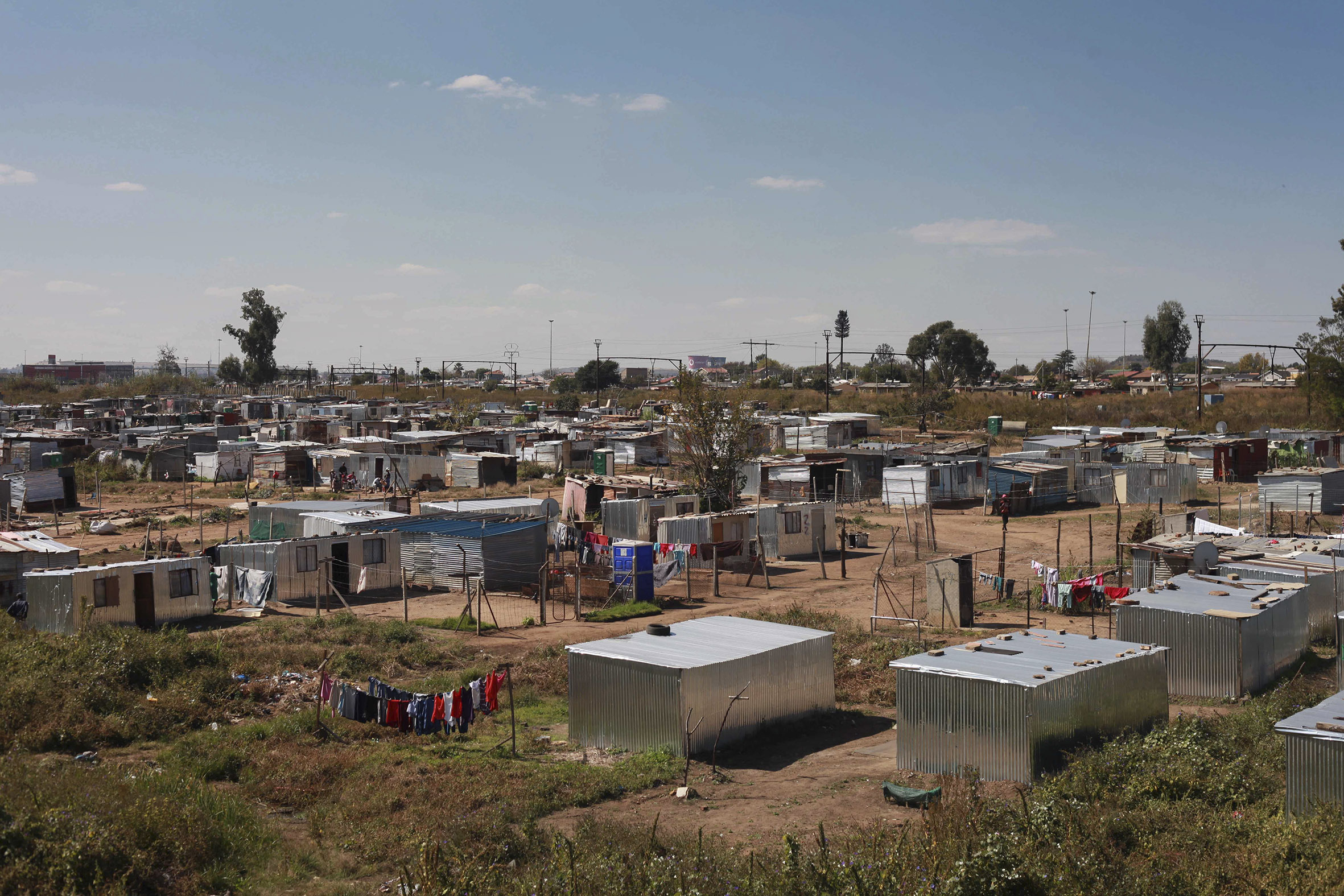
The residents of Chicken Farm, a shack settlement in Kliptown, Soweto, are caught in a struggle to survive crime, unemployment and poverty as well as a growing sentiment of xenophobia in their midst.
Local rumour has it that there has been a number of fights resulting in sometimes deadly shoot-outs between two rival gangs – one from the Goudkoppies landfill site near Eldorado Park and the other based in Chicken Farm. The gang members, who are apparently from Lesotho, are suspected of dealing in stolen electricity cables.
The two small settlements that make up Chicken Farm lie on both sides of the part of Klipspruit Valley Road leading to Chris Hani Road. One is next to the railway line opposite homes in Zone 9 while the other faces the Klip River wetland. Electric cables that are connected to the defunct railway line hang on trees and supply electricity to about 350 shacks.
Nomawethu Nhlanganiso, 46, an unemployed mother of three, survives on her children’s social grants. She came from the Eastern Cape at age 15 when her parents moved from Aliwal North looking for jobs and a better education for their daughter.
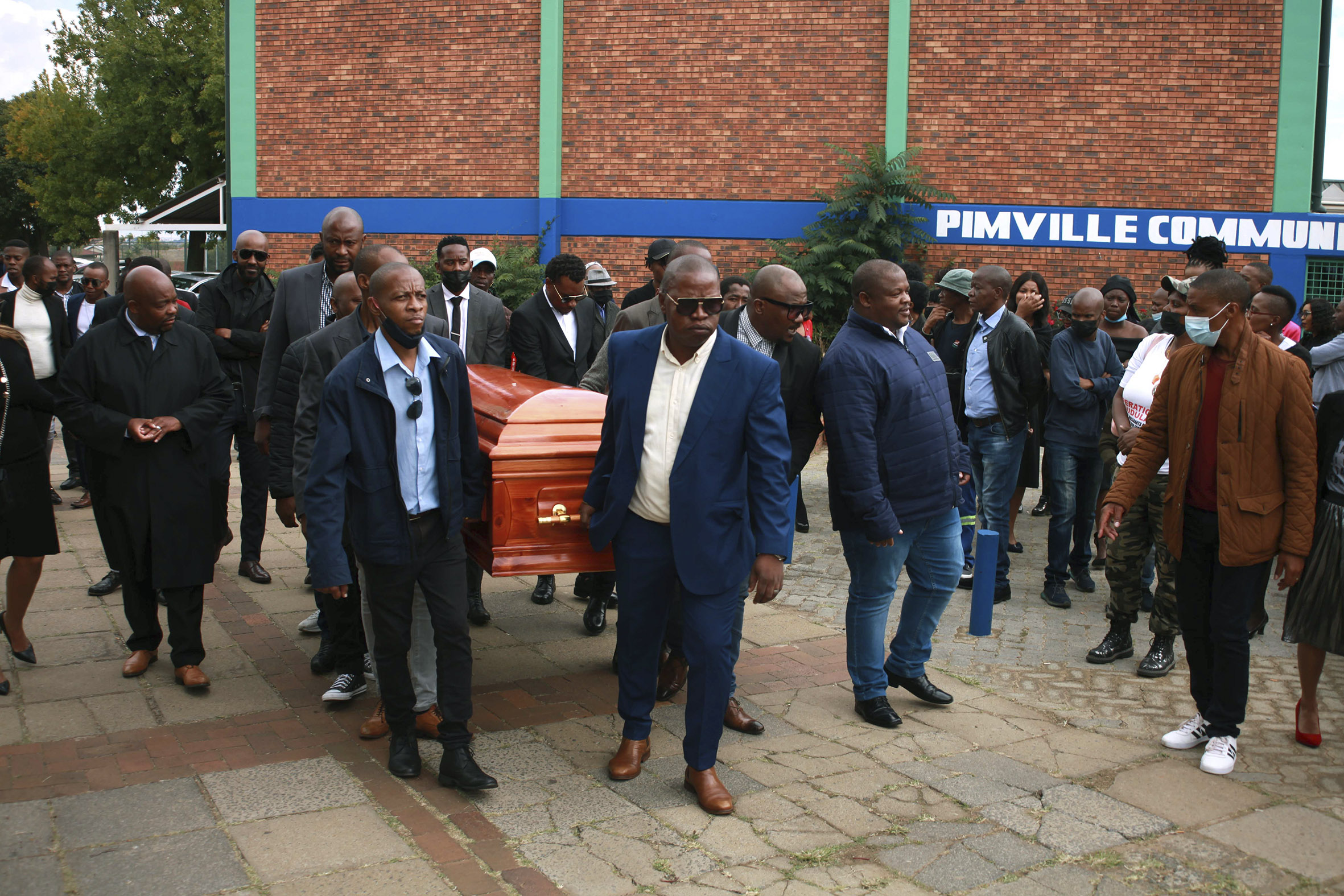

Nhlanganiso says the influx of gang members in the settlement has soured relationships between people from different nationalities and led to increased crime. “We did not hear gunshots during the night, but now things are different. You find these gangsters from the Goudkoppies dumping site coming here to attack the ones from here, and vice versa.”
The complexities facing the residents are evident in the killing of Kgomotso Vincent “Tso” Diale, 44, on 18 April. Diale was killed when angry residents of nearby Pimville marched to Chicken Farm, along with the xenophobic vigilante group Operation Dudula, in protest against cable theft that leads to frequent power outages in Pimville. Some of the leaders of the theft syndicate allegedly live in the settlement. Armed men in a vehicle are reported to have opened fire at the marchers, killing Diale and injuring five others.
“It’s hard for me to accept that my brother is gone. It was very sad when I got to the [crime] scene and saw him like that,” said Neo Diale during the memorial service at their family home in Pimville a few days later. He told the mourners that Diale had been in a jovial mood on the morning of his death. “I saw him at Morris’ Place [a tavern] later that day and he winked at me while I walked past,” Neo said. “He winked at me and I ended up closing his eyes for the last time that night.”
Thabang Moloi, who led the march with Operation Dudula leader Nhlanhla “Lux” Dlamini, also a resident of Pimville, apologised profusely to Diale’s family for his death. “A guy wearing a red T-shirt said in Sesotho that we were not welcome there and that we should leave, before pulling a gun,” Moloi said, describing how the violence started. “Then, on top of the bridge, a guy wearing the seanamarena [Basotho blanket] took out a rifle and started firing. I could not believe that these people could do that to us because we were not fighting,” said Moloi, who had run for cover when the shooting started.
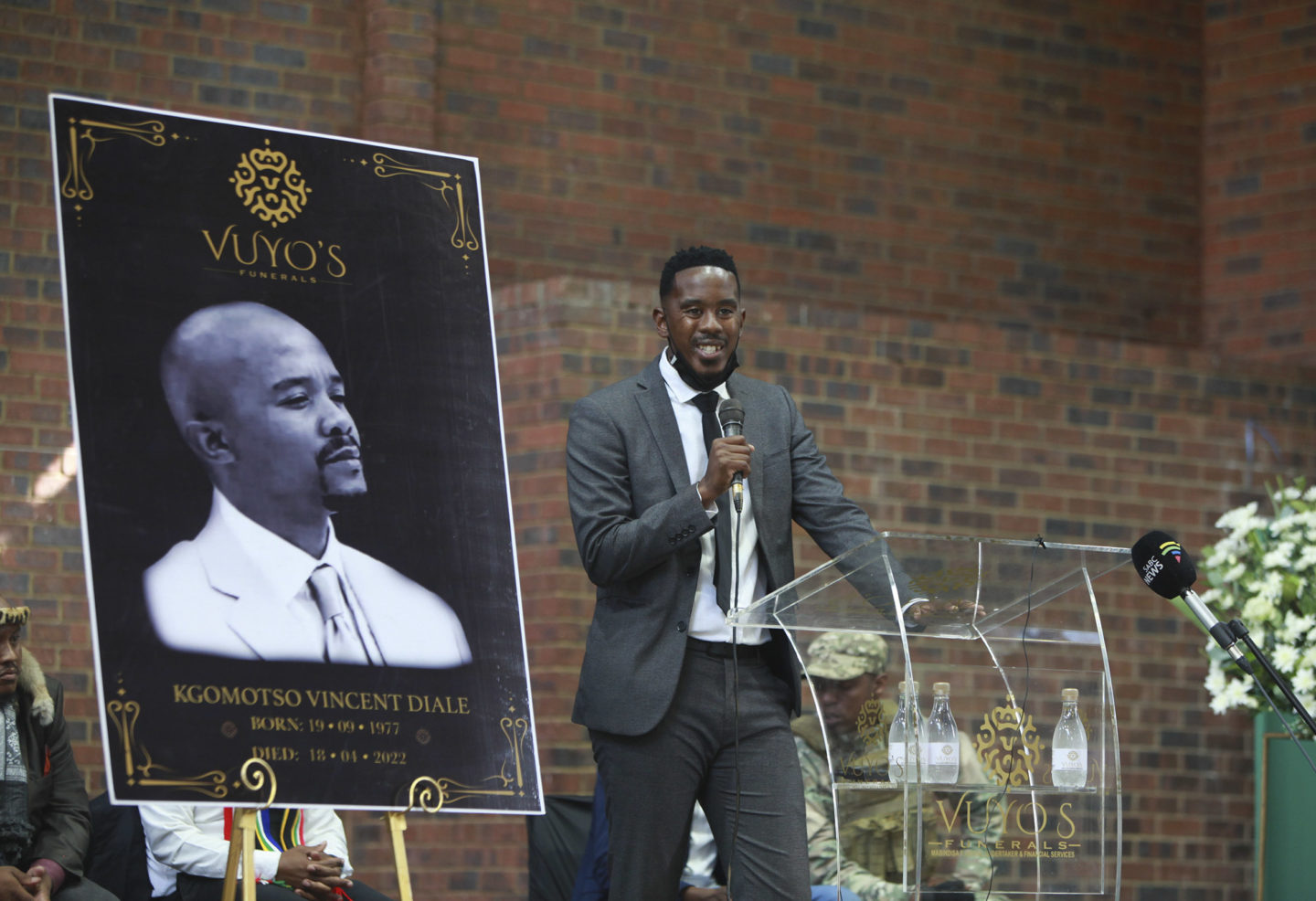

An avoidable tragedy
According to a community leader who was not part of the march and spoke on condition of anonymity, Moloi and Dlamini should have consulted with them before leading the marchers to a hotspot that even Kliptown police are afraid to enter. They say the hostility between Chicken Farm residents and those in Pimville was aggravated by hostel dwellers from Nancefield who had arrived in 15 vehicles last year looking for cable thieves. They allegedly beat some residents and set alight a number of shacks after they could not find any thieves, and also killed five donkeys.
The residents allege that on Good Friday, 15 April, some hostel dwellers went back to Chicken Farm to warn residents not to steal cables. They suspect that the encounter might have triggered the attack in which Diale was killed.
According to some Pimville residents, the original residents of Chicken Farm were relocated to houses in what is now informally known as Zone 14 between 2006 and 2011. The vacant settlement was then occupied by desperate people who needed housing, while some former residents erected shacks to rent them out for profit.
Minister of Police Bheki Cele visited the Diale family on 20 April to offer his condolences. He promised them that justice would be served and said 12 detectives would investigate the case. He also promised to deploy 10 police vehicles to the poorly resourced Kliptown police station, which allegedly has only one police van and whose officers are accused by the community of being unresponsive and corrupt.
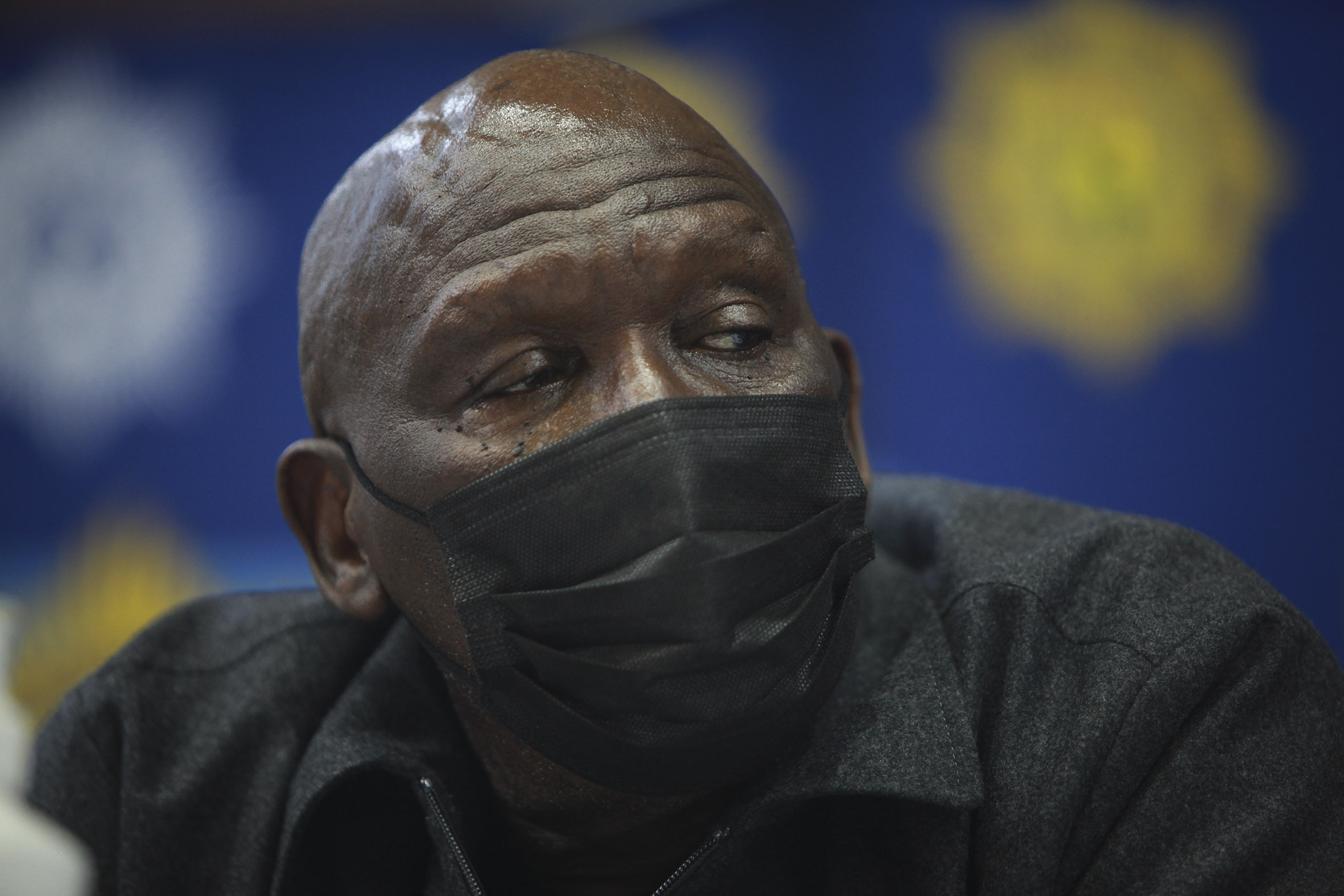

On the same day as Cele’s visit, Eskom and City Power arrived to cut informal electrical connections in Chicken Farm. The following day, two suspects allegedly linked to the fatal shooting were arrested at a house in Dlamini after the police received information about their whereabouts. A third suspect was shot and killed by the police. According to National Prosecuting Authority spokesperson Phindi Mjonodwane, the police arrived at the house and knocked on the door of a backyard room. When they entered, one suspect opened fire and the police retaliated, killing him.
The two remaining suspects, Mokhabi Ngoanapudi, 33, and Tebogo Molapo, 29, made their first appearance in the Protea magistrate’s court in Soweto on 25 April. They briefly appeared again on 4 May and declined legal aid, saying they wanted to appoint their own lawyer. The case will resume on 29 June.
Mjonodwane said the two are charged with two counts of murder, six counts of attempted murder and two counts of possessing unlicenced firearms and ammunition. The second murder charge stems from the death of the third suspect. The firearms seized were taken to the forensic science laboratory for ballistic testing to establish if they can be linked to other crimes.
War talk and restive crowds
Diale’s funeral service was held at the Pimville Community Centre on 23 April and he was buried in Avalon Cemetery. Modjadji Street in Pimville was abuzz with activity as Operation Dudula members and others sang struggle songs. Now and then gunshots were fired in the air in a salute to Diale.
Dlamini, who is out on bail in connection with two cases – charges of housebreaking and malicious damage to property and another for beating a tenant who was renting his mother’s home in Meadowlands in 2019 – continued his war talk.
Dressed in army regalia, he told the congregation: “Please prepare space for us because the way things stand here, we might follow you soon. Please speak to the likes of Chris Hani and Steve Biko to make space for us because we are also following. If our government is failing or does not have enough balls to deal with the criminals, this is a small issue – we will go there ourselves to get rid of those shacks,” he said to cheers.
Keabetsoe “Sticks” Malebo, who stood as an independent candidate in Pimville’s Ward 22 in the local elections with the campaign slogan “Let’s make Pimville great again”, said the shack settlements must go regardless of whether there are children or old people living there.
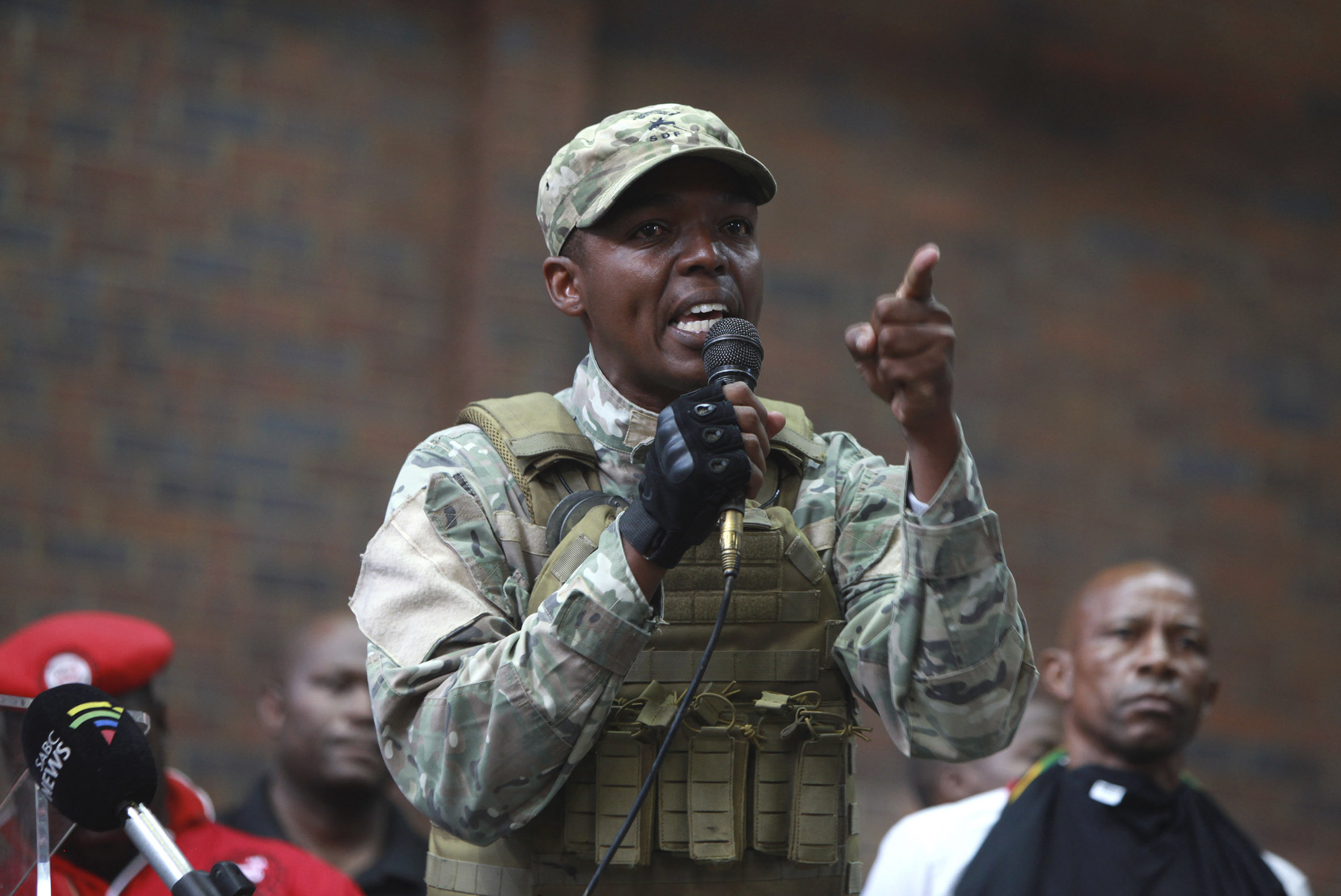

These sentiments were echoed during a crime prevention imbizo held at the same centre on 28 April. Cele, Johannesburg mayor Mpho Phalatse and Gauteng’s member of the executive council for community safety and liaison, Faith Mabaso, attended the event, which was packed with disgruntled residents from Pimville, Klipspruit, Kliptown and Nancefield and Dube hostels.
Dlamini announced that Operation Dudula would work on a coordinated programme to root out cable theft. Some attendees called for Cele, Phalatse and Mabaso to resign if they could not do their jobs. They accused Cele of turning the arrest of Diale’s suspected killers into a media spectacle while the police were not really doing proper investigation work.
Cele warned the residents against taking the law into their hands. “My job is to protect lives and I’m not going to deviate from that,” he said, imploring police officers to act against those who break the law. He also explained to the crowd that a limited number of police officers had to be spread among 1 153 stations across the country.
Police spokesperson Brigadier Brenda Muridili said she would, but after a week still had not responded to queries regarding what processes have been put in place to ensure the situation is under control at the settlement, the threats its residents face and the area allegedly being a no-go area among police officers.
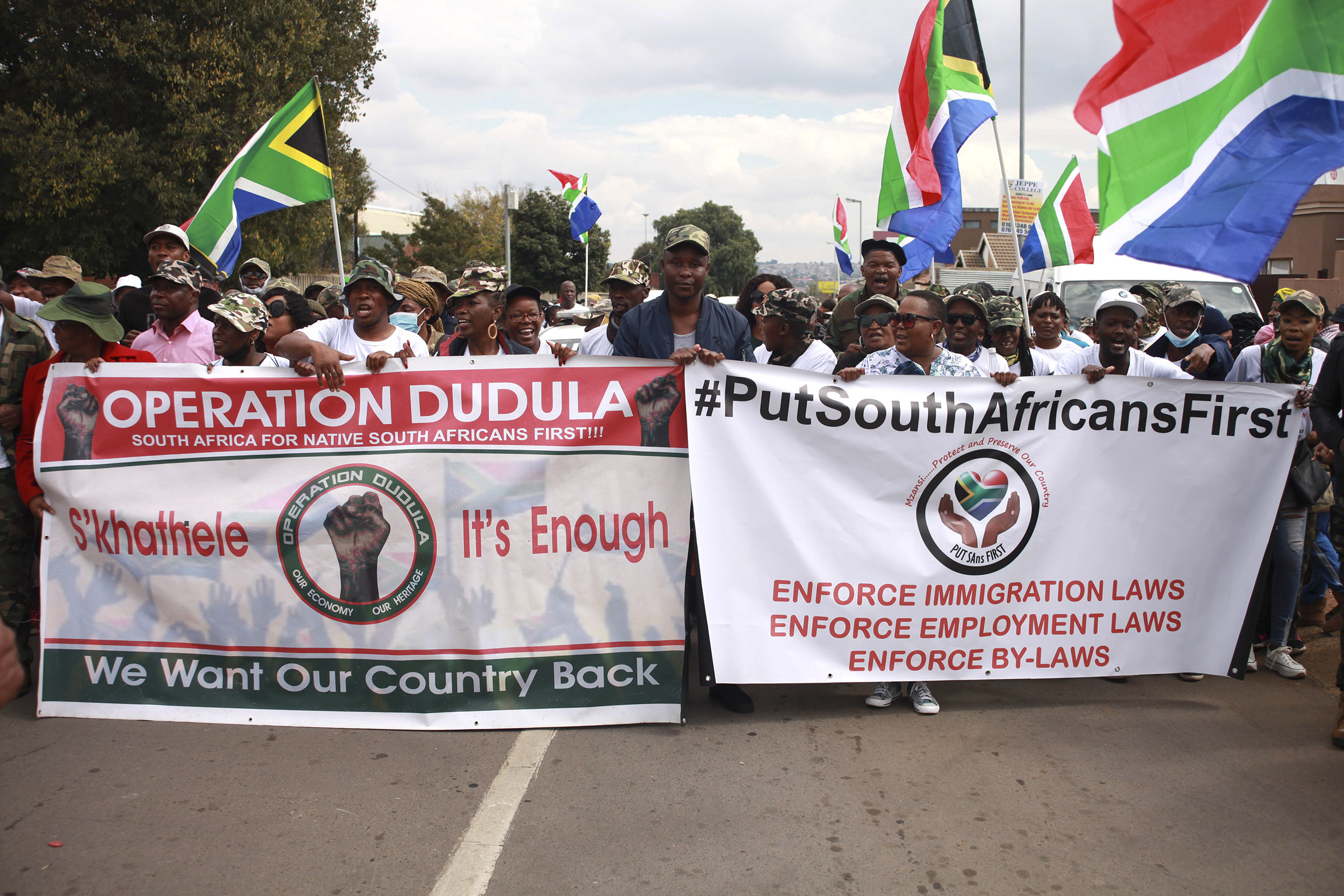

Update, 18 May 2022: This story has been amended to reflect that police spokesperson Brigadier Brenda Muridili had not responded at the time of publication.
